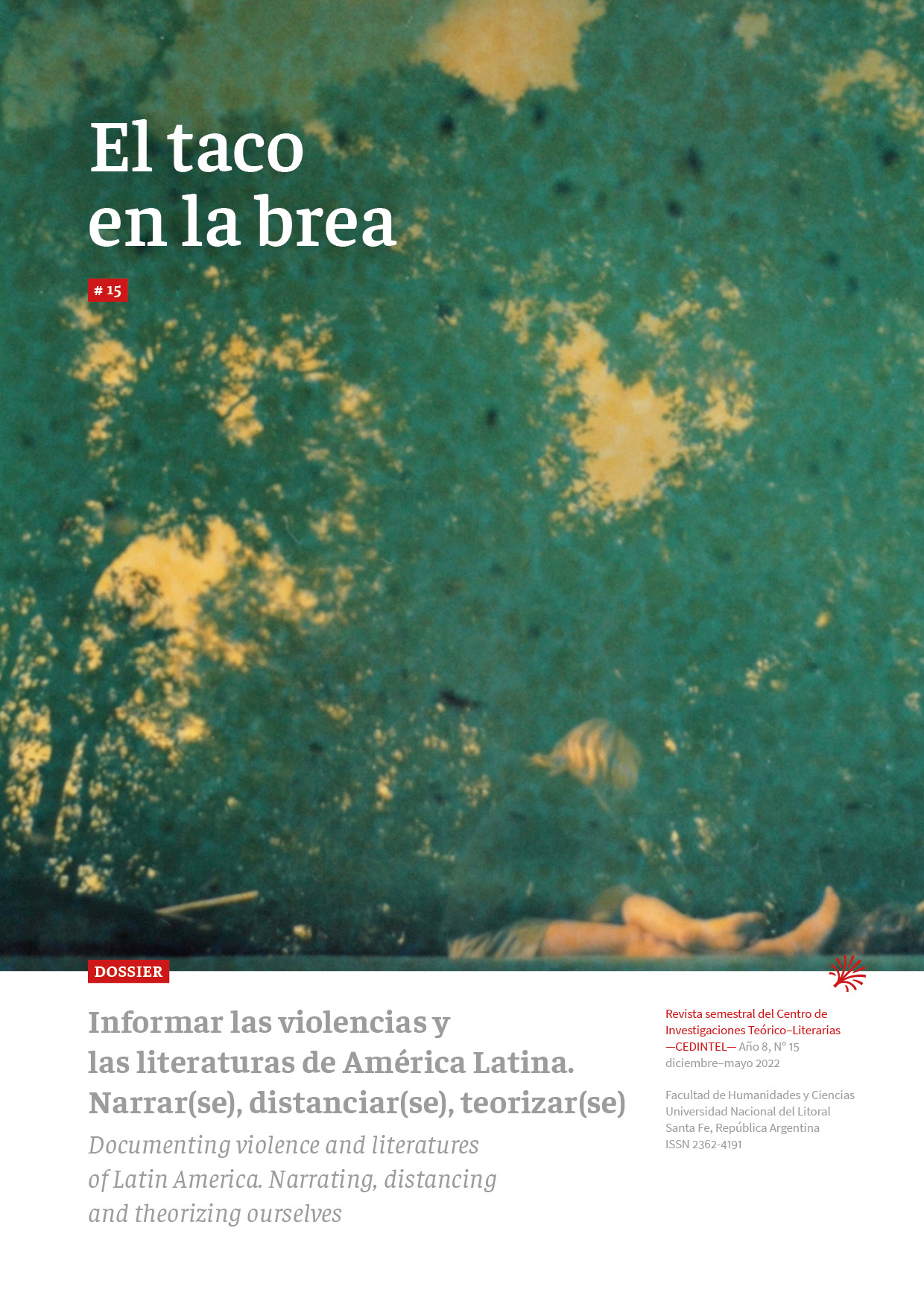Militarism and male imperatives under wartime conditions. An approach to Horacio Castellanos Moya’s La sirvienta y el luchador
DOI:
https://doi.org/10.14409/tb.2022.15.e0068Keywords:
militarism, war, male culture, male imperatives, Central American narrativeAbstract
The article questions the male performance in war conditions in Horacio Castellanos Moya’s La sirvienta y el luchador (2011) and how a type of residual masculinity is reiterated through practices and fantasies and, in turn, endorsed by the heteropatriarchal society. In the narrative world, the interconnection between militarism and male community is clear; the war has intoxicated the character’s life. The figure of Belka and Rita succeed in creating survival strategies in a markedly hostile world.
Based on the notions of feminist narratology (Lanser, 1986), intersectionality (Hill Collins, 2019) and the critical Men’s Studies (Horrocks, 1994; Higate, 2003; Brandes, 2003), the work explores the negative dimensions of the residual masculinities and their imperative.
In order to put the novel into perspective, the military question in Castellanos Moya’s production was considered in the first section, revealing the deep historical and psychosocial connections; hence one of the theoretical references is Martín-Baró (1990). The article is divided into four parts: militarism, a review of criticism on La sirvienta y el luchador, the male imperatives in the war and conclusions.





















